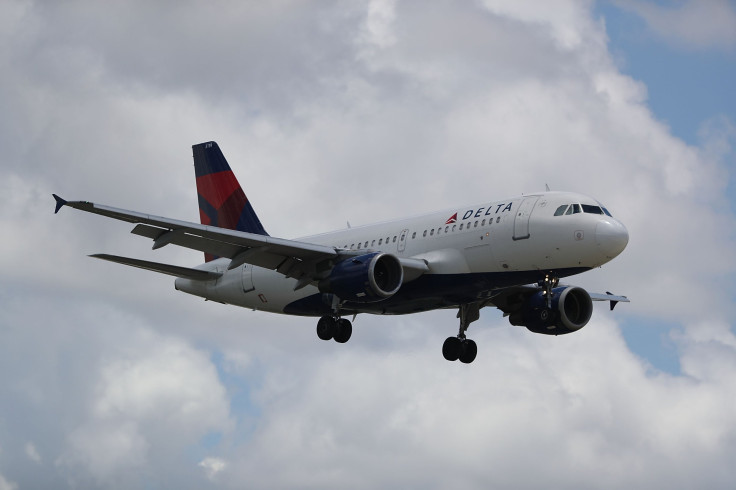Mother Daughter Nurses On Delta Flight Save Fellow Passenger's Life

A male passenger's life was saved on a Delta Air Lines flight to Salt Lake City Dec. 13 by a mother-daughter pair of nurses. The man's blood pressure registered at 56/30 as he reportedly experienced a hypovolemic shock, according to a report from the Asheville Citizen-Times. This was likely due to extreme dehydration.
Morgan Anderson, 26, said she forgot that she suffered from fear of flying as she worked alongside her mother, 57-year-old nurse Rose Anderson, at 8:30 a.m. to save a man on "the brink of death," the Citizen-Times reported. The man, who appeared to be in his sixties, was slumped over in his seat with vomit all over his shirt.
"I didn't feel like I was in the air, thousands of feet above the world," Anderson told the Citizen-Times. "I just got tunnel vision and focused on him and my mom."
As the medical emergency occurred on the flight from Asheville, North Carolina, a flight attendant hopped onto the plane's PA system to call for the assistance of any medical professionals on board. Anderson, who had fallen asleep, was nudged by her mother after the announcement was made. The pair then made their way to the front of the plane.
"If somebody hadn't done something to correct that, he probably would've gone into cardiac arrest and died," the mother said to the Citizen-Times. "It was like walking a tightrope, keeping him all right with what we had."
The duo utilized a medical kit that was on board. It included a needle, four 250-milliliter bags of saline solution, intravenous tubing, a catheter and a blood-pressure cuff, which Anderson's mother used to decipher the patient's medical issue.
We're so inspired by our team members' accomplishments, both in and out of our hospitals and clinics _ Woohoo Morgan Anderson! https://t.co/qsutio2iO1
— Mission Health (@MissionHealthNC) December 29, 2017
While they worked to save the man's life, the mother-daughter pair relayed information to a doctor on the ground in Pittsburgh. It's common for airlines to have physicians on the ground in case of medical incidents, like this, as they are tasked with deciding whether to reroute the flight for a potential emergency landing. In this case, the doctor confirmed that the passenger was stable enough to stay aboard.
The man regained consciousness after several minutes on the IV. He was also able to drink and speak, thereafter, but the nurses stayed with him for the rest of the flight. Paramedics took over for the nurses after the flight landed in Salt Lake City.
"Delta sincerely appreciates the efforts of these medical professionals who came to the aid of one of our customers who fell ill on a recent flight," said Michael Thomas, a Delta spokesman, according to USA Today.
Nearly 44,000 in-flight medical emergencies occur worldwide annually, according to the authors of a 2013 study in The New England Journal of Medicine. Access to efficient medical care in these types of circumstances is limited, however.
"While we can handle all sorts of situations, we're only allowed to treat symptoms," Heather Poole, a veteran flight attendant, told Today. "We can't diagnose somebody and then treat them. If they're bleeding, we stop the blood — that sort of thing."
A representative for Delta Air Lines did not immediately return International Business Times' request for comment.
© Copyright IBTimes 2025. All rights reserved.






















